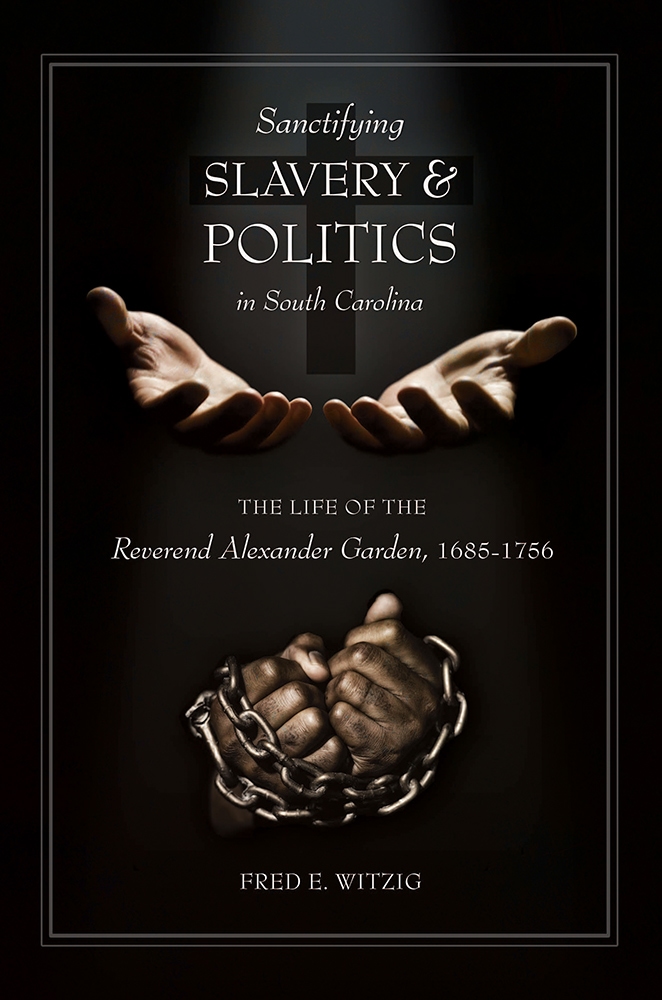Black History Month Sale: 40% off all books, plus FREE SHIPPING on all U.S. orders over $50 | Use code JBHM26

Size: 6 x 9
Pages: 252
Illustrations: 4 b&w halftones
Fred E Witzig
The inclusion of this book in the Open Carolina collection is made possible by the generous funding of
"Fred E. Witzig's Sanctifying Slavery and Politics in South Carolina delivers a much-needed biography of Alexander Garden, arguably the most prominent religious figure in the eighteenth-century lower South. But it also illuminates fascinating facets of colonial South Carolina's religion, culture, and its 'Great Anti-Awakening.'"—Thomas S. Kidd, author of George Whitefield: America's Spiritual Founding Father
"Commissary Alexander Garden's heated opposition to George Whitefield has often clouded our appreciation for this multifaceted man. Fred E. Witzig admirably unpacks Garden's life as a son, churchman, educator, family man, elite Carolinian, and yes, contrarian. Well written, critical, and appropriately empathetic, Sanctifying Slavery and Politics in South Carolina is a model study of a controversial figure."—Samuel C. Smith, professor of history, Liberty University, author of A Cautious Enthusiasm: Mystical Piety and Evangelicalism in Colonial South Carolina
"A fascinating biography of Alexander Garden, who made the Church of England a power to be reckoned with in colonial South Carolina by marrying the Church to the elite's interests. Ornery, vindictive, political, and social, Garden dutifully guided the Church through decades of challenges from within and without. Lively, learned, and well-written, this is the best book yet on religion in colonial South Carolina."—Alan Gallay, Texas Christian University
"Sanctifying Slavery succeeds admirably in bringing Garden's unique career to light. The work is thoroughly grounded in primary sources and draws effectively from secondary scholarship far beyond the boundaries of religious history, including slave studies, economic history, and ethnohistory. This well-written and persuasive analysis deserves a wide audience."—Journal of American History
Copyright 2026
Website By Morweb.org